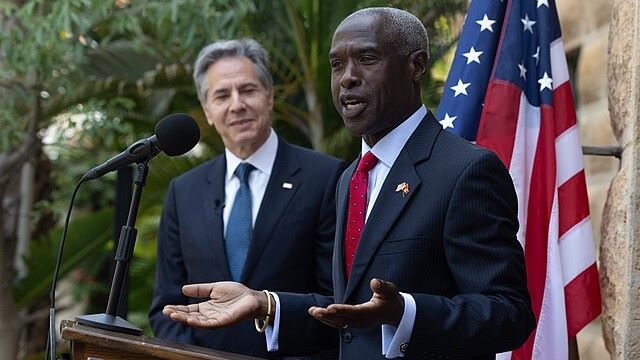In Luanda, the rhythms of daily life unfold against a backdrop of political transformation. Markets bustle, skyscrapers rise along the coastline, and debates over the nation’s future echo through parliament halls. Angola, blessed with rich natural resources and a complex history, stands at a pivotal juncture—facing enduring challenges yet holding the promise of renewal.
Shadows of the Past
Modern Angola’s politics cannot be separated from its turbulent history. Independence from Portugal in 1975 came at the cost of immediate upheaval, followed by a devastating civil war that spanned nearly three decades. The conflict’s end in 2002 opened the door to stability and oil-fueled growth, but also left behind scars—fractured trust in institutions, lingering regional inequalities, and a governance system still adapting to the demands of a new era.
The Power Structure
Since independence, the People’s Movement for the Liberation of Angola (MPLA) has held the reins of power. Under former president José Eduardo dos Santos, the party presided over years of economic expansion, though often shadowed by allegations of corruption. His successor, João Lourenço, has sought to reshape the political landscape, launching anti-corruption campaigns and pledging reforms.
Across the aisle, the National Union for the Total Independence of Angola (UNITA) has redefined itself from a wartime adversary into the country’s primary opposition force. Led by Adalberto da Costa Júnior, the party calls for more transparent governance and expanded democratic participation. Meanwhile, smaller political parties and civil society organizations continue to advocate for human rights, social justice, and institutional reform, adding a multiplicity of voices to Angola’s evolving political discourse.
Persistent Fault Lines
Corruption remains one of the nation’s most entrenched problems, eroding public confidence and complicating development efforts. Lourenço’s initiatives have yielded high-profile investigations, yet systemic change has proven slow.
Economic dependence on oil presents another pressing vulnerability. Despite official pledges to diversify—focusing on agriculture, tourism, and emerging industries—progress is hindered by bureaucratic inefficiency and the same governance issues reformers aim to dismantle.
Social inequality further complicates the national picture. Luanda’s gleaming new developments contrast starkly with rural areas where infrastructure is scarce and opportunities remain limited. Calls for equitable growth are becoming louder, particularly among younger generations.
Openings for Change
For all its difficulties, Angola’s political terrain holds significant opportunity. Institutional reforms, if sustained, could strengthen the rule of law and foster greater political accountability. Economic innovation—especially in renewable energy, agribusiness, and technology—has the potential to create new livelihoods and reduce reliance on oil exports.
Angola’s demographics also favor renewal. A youthful population, increasingly engaged in activism, entrepreneurship, and cultural initiatives, represents a wellspring of potential for social and political change. Regionally, the country’s position in Southern Africa offers avenues for deeper cooperation in trade, security, and infrastructure.
A Balancing Act
The nation’s future hinges on its ability to reconcile its historical burdens with the demands of a rapidly changing world. Navigating between reform and continuity, Angola’s leaders face the task of broadening participation, safeguarding transparency, and ensuring that economic gains reach far beyond the capital’s urban core.
In this landscape of competing interests and shared aspirations, Angola’s political journey remains unfinished—its trajectory shaped by the interplay between those seeking to preserve the past and those determined to redefine it.
Sources:
- Hodges, Tony. Angola: Anatomy of an Oil State. Indiana University Press, 2004.
- Human Rights Watch. “Angola: Events of 2023.” World Report 2024.
- International Crisis Group. “Angola’s Politics and the Oil Economy.” Report No. 300, 2023.
- United Nations Development Programme. Human Development Report: Angola, 2024.

